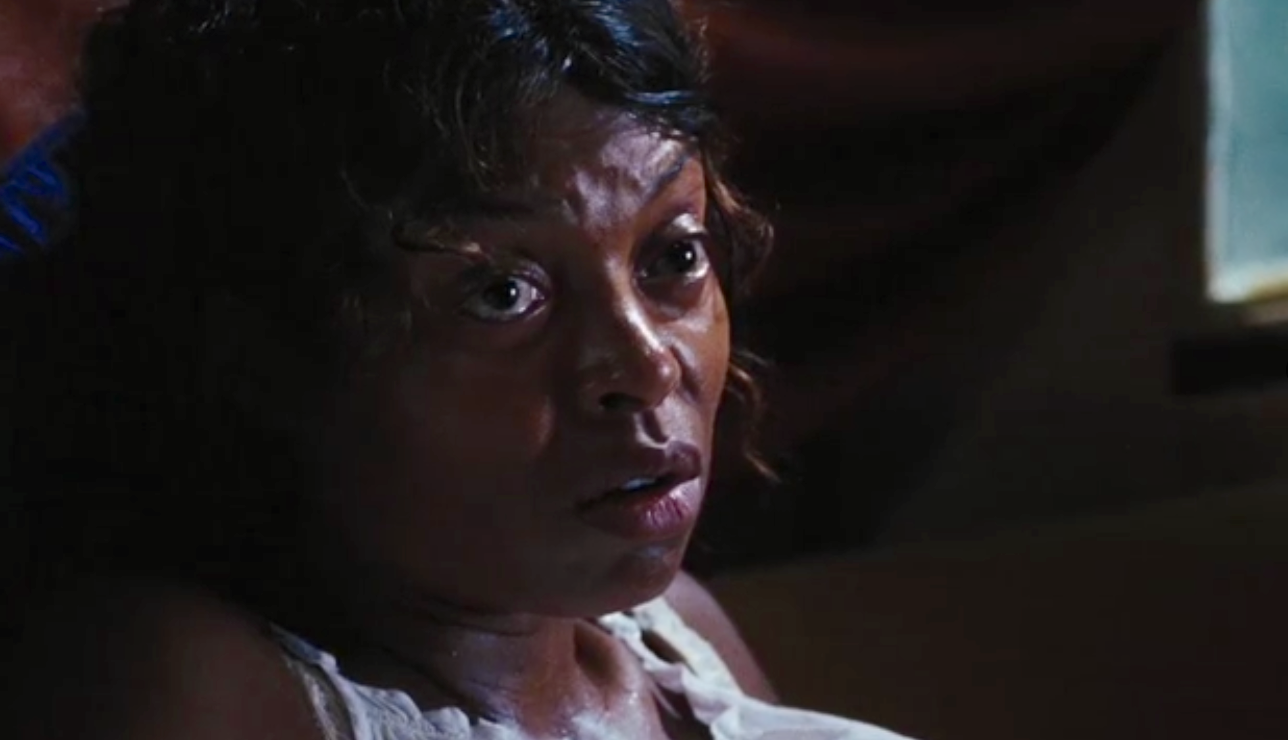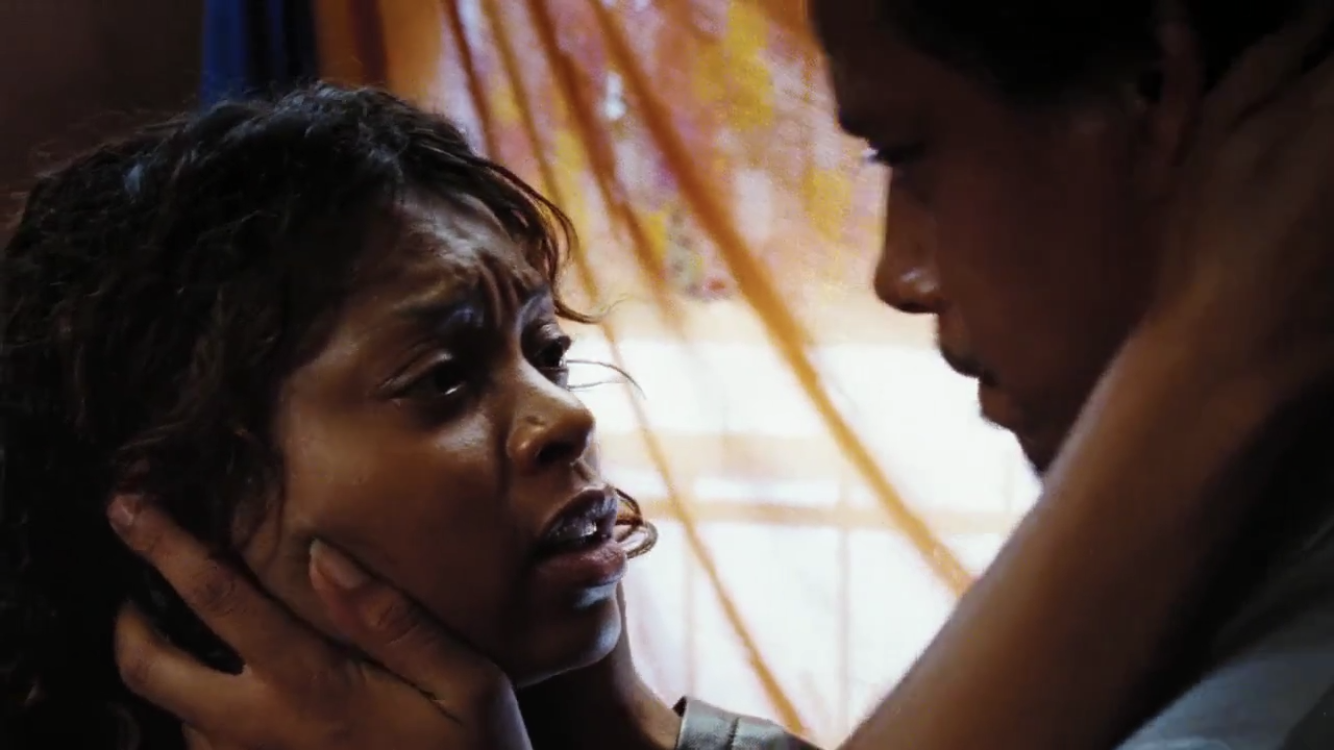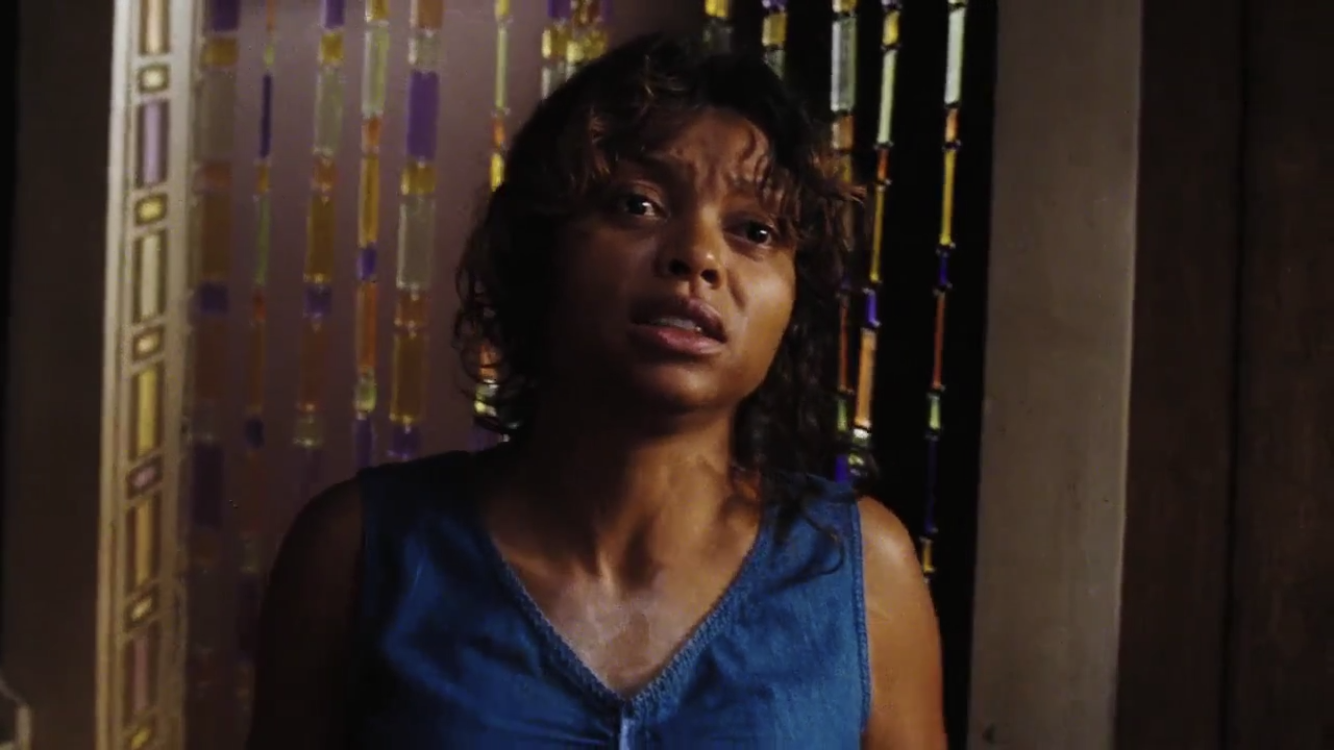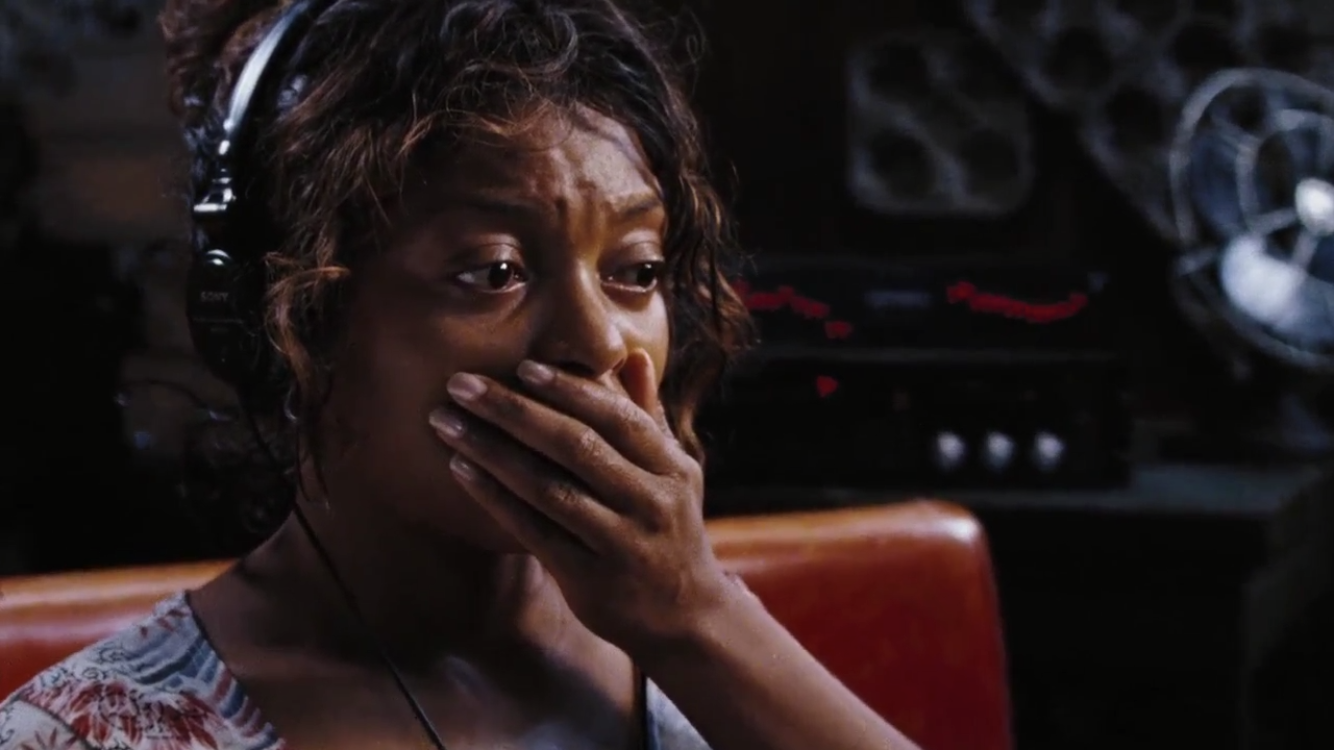by Nick Taylor

The five nominees of the 2005 Supporting Actress lineup represent some of the best performances of an exceptional year for adult drama. Their films range from intimate character studies to politically and morally charged biopics, some with considerable studio backing and some running hot on the indie circuit. Each performer wrangles memorably with their roles, and provide their own distinct examples of what great screen acting looks like. You might pine for some generic diversity between Oscar’s selections (or, y’know, actual diversity), but each of them represents entirely different notions of how an actress and their character can properly support a film. To push against such a lineup seems almost churlish, and yet, we must. For all the credible sixth spots in this category, from Maria Bello in A History of Violence to Shirley MacLaine in In Her Shoes (both of whom you can still vote for on Cláudio's "Almost There: Reader' Choice" poll!), I'm kicking this cycle off with an actress who never quite made the headway they did but, for my money, is equally deserving of the attention they earned.
Let's talk about Taraji P. Henson's radiant breakthrough performance in Hustle & Flow...

Hustle & Flow is anchored in every scene by Terrence Howard’s star turn as DJay, a drug-dealing pimp who’s grown tired of hustling. His operation largely consists of the three women he lives with and tricks out in an un-airconditioned home: Shug (Taraji P. Henson), sweet and shy and very, very pregnant; Lexus (Pauli J. Parker), a stripper with a toddler whose financial success at the club has made her weary of relying on DJay; and Nola (Taryn Manning), DJay’s de facto right hand who’s even more tired of their life than he is. Newly reacquainted with a high school friend named Key, (Anthony Anderson) a sound engineer with long buried dreams of producing his own label, DJay is inspired to become a hip-hop musician as a last-ditch attempt to reinvent himself. Aided in the creative process by Key’s fellow sound mixer Shelby (DJ Qualls), with some additional support from Shug and Nola, and DJay sets out to finish a demo tape before the Fourth of July, so he can deliver it to Memphis rapper and hometown legend Skinny Black (Ludacris), banking on an old friendship no one else can verify to convince Skinny to listen to his music.
For me, films about aspiring musicians - and about aspiring artists in general - inordinately live or die by the artistic bonafides of their creators. How can this director and their team convince us of their character’s idiosyncratic talents while proving their own skill in the process? Director Craig Brewer dramatizes his script with equal parts exploitation sweat and honest insight, never sanding down anyone’s vulgarities or copping to cheap cynicism. Three 6 Mafia’s Oscar winning tracks are integral to the DNA of Hustle & Flow, walking a catchy line between DJay’s self-aggrandizing odes to his troubled life and slick, mid-2000’s radio-ready-realness. Enough good things cannot be said about Terrence Howard’s intense, perfectly laconic inhabiting of DJay, but the whole cast deserves credit for investing their archetypal roles with so much verve and personality that their story seems refreshingly new. Brewer and his actors carefully track the ambitions of Hustle & Flow’s supporting players, planting the right seeds to ensure their storylines pay off just right at the film's end.

Still, there's something to be said for an actor knowing when not to play an arc. As important as Shug is to Hustle & Flow, she doesn’t change in circumstance or reevaluate herself to quite the extent the other characters do. For all we learn about her, she's largely the same person she was at the end as she was at the beginning. But a static role is just as hospitable to a multifaceted, well-rounded characterization, and Henson makes Shug a fully formed figure without overemphasizing a shift in personality or making her come out of her shell by the end of the film. We get a pretty clear impression of her from her first scene, enjoying herself watching TV but warily watching to see if a spat between DJay and Lexus will boil over into something nasty, and trying to talk to DJay about needing more alone time while he has a conversation with himself. I love her way of relating to DJay's admission of having a mid-life crisis is revealing her recurring nightmares about birthing a catfish, explaining them as inchoate fears her mind isn’t ready to let her understand. She doesn’t try to comofrt or assuage him, but opts to reassure his insecurities by revealing some of her own.
Indeed, one of the best things about Henson’s performance is how effectively she’s able to communicate who Shug is by making her such an astute observer/reactor to DJay. She’s a watchful, slightly on-edge presence, her wide, expressive eyes scanning the room every moment she’s on screen. Shug’s fondness and bone-deep loyalty to DJay is unfussily played, though she’s not blind to his temper. Her futile attempt to de-escalate a fight between DJay and Lexus, culminating in her terrified, full-bodied protection of Lexus’s son, is the most heartbreaking and grounding element of a ratcheted up confrontation. And yet, Henson never roots Shug's relationship with DJay in any sort of fear or anxiety. They genuinely care for each other, and both actors convey what an an unexpectedly well-synched match her naked sincerity is to his oscillations between candor and deception. Even more than her ability to read DJay, Henson is tremendous in scenes where Shug gives DJay nothing more or less than her full, undivided attention. This is especially illustrated in the centerpiece scene of Hustle & Flow, where Shug is called in to record the hook for “Hard Out Here For a Pimp”. Henson embodies Shug’s giggly nervousness as she makes incremental steps forward to improving her recording - getting comfortable with the lyrics, singing out the notes - but it’s when DJay gets next to her and tells her to push that shit out that she nails the track, locking eyes with him while she belts out the lyrics. She doesn’t just connect with the music but fully attunes herself to DJay’s inscrutable wavelength, in a way no one else in the film is quite able to match.

The only thing better than watching Shug nail the hook of the song is her awestruck, mouth-covered gasp at hearing her own voice bumping through the speakers once Key and Shelby have given it the works. Her total astonishment, quickly sliding into happiness as she starts grooving to the track, is possibly the loveliest acting beat in the whole film, and is certainly my favorite moment in Henson’s endlessly endearing performance. The instances when Shug is foregrounded always feel like a pleasant surprise, given her wallflowery nature and semi-peripheral relationship to the main story. Every time she steps into Hustle & Flow's spotlight, it feels like we (along with DJay) walk away with an even greater understanding about who this woman is and what a boon her goodness has been for the whole film. Just as gratifying is the gradual realization of how much thought and effort Henson has put into her work, crafting her performance with the same care and attention that Shug herself demonstrates throught the film. She trusts in her incredible expressivity to deepen her own characterization while staying true to Shug's soft-spoken power, flourishing in unexpected ways without changing all that much from the person we first meet sitting on the couch, trying to get some time to herself and comforting her friend with nightmares of catfish.